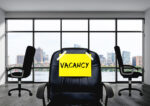A proposal to ease Boston homeowners’ property tax burden would leave struggling office owners shouldering more of the load.
Boston Mayor Michelle Wu is petitioning for a temporary increase of Beantown’s tax-rate ceiling for commercial properties relative to residential levies, Bloomberg reported. The adjustment would shift the onus of filling the city’s looming budget gaps from residences to offices.
The adjustment would be phased in over three years.
More than a third of tax revenue for Boston comes from commercial property, a much greater share than in cities such as Chicago, Miami and New York, so commercial downturns are felt much more sharply.
The city is at risk of losing more than $1 billion in tax revenue over the next five years, according to an earlier analysis from Tufts University’s Center for State Policy Analysis and the Boston Policy Institute.
Because the mayor does not want to slash spending, the city either needs to raise taxes on homeowners — arguably the most powerful constituency in politics — or find another way to shore up its finances.
Boston might need to raise taxes on residents by as much as 30 percent if no other measures are taken to fill the void.
While home values have rocketed upward, the vacancy rate for Boston’s office space hovers around a record 25 percent, according to Colliers. That is why tax revenue from offices is expected to fall. But making up for that by raising rates strikes some critics as foolish.
“You don’t raise taxes on an industry which is suffering because you’re going to make it less competitive,” NYU urban policy and planning professor Mitchell Moss told Bloomberg. Office tenants could relocate to Cambridge or elsewhere, he said.
There’s precedent for what Wu is pushing. Two decades ago, Boston made a similar reclassification when the dot-com bubble burst, sending the commercial market spiraling. But a full recovery from that downturn seemed inevitable, which does not appear to be the case from the pivot to remote work.
Commercial properties in Boston are taxed at a rate of about 2.5 percent, while residences are taxed at 1.1 percent, according to Tufts University’s Center for State Policy Analysis and the Boston Policy Institute.
Read more



